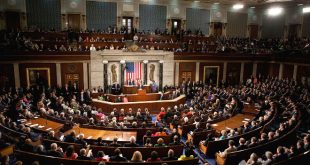 Politically we appear to be living in the year of the outsider. Donald Trump has shocked the established political class and its loyal journalistic following. Senators Ted Cruz and Bernie Sanders are upsetting governing elites almost as much as Trump. The public says it is angry and isn’t going to take it anymore.
Politically we appear to be living in the year of the outsider. Donald Trump has shocked the established political class and its loyal journalistic following. Senators Ted Cruz and Bernie Sanders are upsetting governing elites almost as much as Trump. The public says it is angry and isn’t going to take it anymore.
Yet the prescription offered by these three candidates is very different. The Donald constantly trumpets that he is a deal maker. Cruz and Sanders are more interested in the substance of the deal and always ready to say no deal.
There’s no doubt that politics involves compromise. Even such dominant figures as Franklin Roosevelt, Lyndon Johnson, and Ronald Reagan had to accept less than what they wanted.
However, all of them started with strong convictions as to what needed to be done. From there they pushed to get as much as they could. And they compromised when there was no alternative. For them, deal-making was not a substitute for principle, but the culmination of principle. How do you put your beliefs into practice?
For Donald Trump deal-making appears to be the end, not the means. Hence his book, The Art of the Deal. Businessmen who’ve worked with him say he is most interested in the hunt and loses interest after he bags his prey.
In the presidential race he rarely offers policy prescriptions beyond generalities and platitudes. He will make Mexico build a wall, for instance. What seems to excite him about being president is the same thing which energized him in business. “The problem with Washington, they don’t make deals, it’s all gridlock,” he proclaimed. “I’ll get everybody together. We’ll make great deals for the country.”
But what precisely are those “great deals”? Trump complained that President Barack Obama “signs executive orders because he can’t get anything done.” Actually, the president has done pretty well politically—unfortunately!
He won passage of a budget-busting “stimulus” bill that enriched Washington more than the public. He pushed through a health care “reform” measure which turned American medicine over to the federal government. And he has used presidential power to pursue his agenda even against the Republican congressional majority—which was no more interested in making “great deals” with the president than he was with the GOP.
Trump made a similar criticism of Cruz, who “doesn’t have the support of one other Republican Senator.” Complained Trump: “Guys like Ted Cruz will never make a deal because he’s a strident guy.”
Actually, Cruz has resisted deal-making in Congress not because he is strident but because he is principled. Much the same can be said of Bernie Sanders. For these two senators, the reason to be in office is not to pass legislation, but to pass what they consider good legislation. If that proves impossible, they are unafraid of gridlock.
Think about some of the most celebrated political deals, which have proved to be disastrous in practice. Ronald Reagan’s 1983 tax-hike plan: the promised three-for-one in spending cuts never materialized. George H.W. Bush’s abandoned “read my lips” promise to oppose tax hikes. Before the Democrats lost control of Congress Bill Clinton won big increases in outlays and taxes, which he later admitted were too high. George W. Bush and the Republican Congress passed a huge Medicare drug benefit which they made no attempt to pay for.
Then, as mentioned earlier, there’s Barack Obama who, with the help of his Democratic friends in Congress, won approval of the “Affordable Care Act” that we never will be able to afford. They also gave us hundreds of billions of dollars in economic “stimulus” which spent hundreds of thousands of dollars, and sometimes even millions of dollars, for every job “created”—without boosting the economy. The president has made dubious agreements with Cuba and Iran; he’s trying to make another on Syria and there’s talk about him reaching out to North Korea. Imagine the other horrible “deals” which he might have made had Republicans not won control of Congress.
So the next time a presidential candidate, any presidential candidate, starts talking about making deals, the right question is: what kind of deals? Would the new policy protect Americans’ property and liberty? Would the new law respect our liberty? Would the new regulation advance our prosperity? Would the new measure bolster the moral foundations of our society?
If not, as president he or she should say “no deal!”
It’s true that Washington isn’t working. It certainly isn’t serving the people. But the answer is not to elect a dealmaker. Rather, Americans need to elect a maker of good deals.
 Ken Blackwell is a senior fellow at the Family Research Council and the American Civil Rights Union, and on the board of the Becket Fund for Religious Liberty.
Ken Blackwell is a senior fellow at the Family Research Council and the American Civil Rights Union, and on the board of the Becket Fund for Religious Liberty.
 CURE News and Clergy Blog News and Commentary for Christians
CURE News and Clergy Blog News and Commentary for Christians



